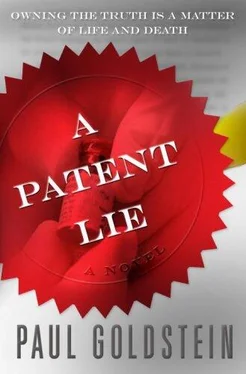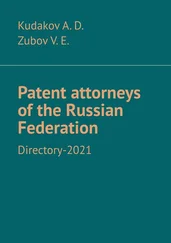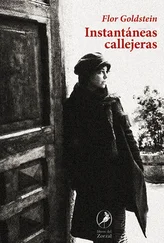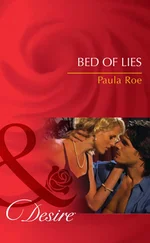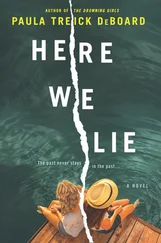Paul Goldstein - A Patent Lie
Здесь есть возможность читать онлайн «Paul Goldstein - A Patent Lie» весь текст электронной книги совершенно бесплатно (целиком полную версию без сокращений). В некоторых случаях можно слушать аудио, скачать через торрент в формате fb2 и присутствует краткое содержание. Жанр: Криминальный детектив, на английском языке. Описание произведения, (предисловие) а так же отзывы посетителей доступны на портале библиотеки ЛибКат.
- Название:A Patent Lie
- Автор:
- Жанр:
- Год:неизвестен
- ISBN:нет данных
- Рейтинг книги:3 / 5. Голосов: 1
-
Избранное:Добавить в избранное
- Отзывы:
-
Ваша оценка:
- 60
- 1
- 2
- 3
- 4
- 5
A Patent Lie: краткое содержание, описание и аннотация
Предлагаем к чтению аннотацию, описание, краткое содержание или предисловие (зависит от того, что написал сам автор книги «A Patent Lie»). Если вы не нашли необходимую информацию о книге — напишите в комментариях, мы постараемся отыскать её.
A Patent Lie — читать онлайн бесплатно полную книгу (весь текст) целиком
Ниже представлен текст книги, разбитый по страницам. Система сохранения места последней прочитанной страницы, позволяет с удобством читать онлайн бесплатно книгу «A Patent Lie», без необходимости каждый раз заново искать на чём Вы остановились. Поставьте закладку, и сможете в любой момент перейти на страницу, на которой закончили чтение.
Интервал:
Закладка:
“That's right, Your Honor. My client is aware of the court's interest in efficiency, and we thought it would help to move the trial along.”
Fawning like this, Seeley knew, won a lawyer nothing but a judge's disdain. Thorpe would not have said it.
The judge looked over her glasses at the Swiss lawyer. “The court is very grateful, Mr. Dusollier. I'm sure your employer had its reasons.”
The Swiss lawyer adjusted his tie and nodded, but said nothing.
The judge removed several paper-clipped pages from the folder. “I've looked at both of your witness lists-”
Fischler spoke before the judge could finish. “We have no changes, Your Honor.”
Seeley said, “We have one change, Judge.”
Farnsworth's frown told Seeley that he had misstepped. She wasn't interested in his witness lineup. She had been heading in a different direction when Fischler interrupted. Barnum either didn't see or didn't understand, and he leaned into Seeley. His whisper was hoarse. “What change? You didn't ask me.” Seeley smelled the peppermint on his breath.
“The reason I was looking at your lists”-Farnsworth turned to include Fischler-“was that both of you, but particularly your client, Ms. Fischler, are going to have to thin out your witnesses. I've decided that we can try this case in two weeks. That means each of you has twenty-four hours of trial time to spend however you want, on opening, direct, cross, and closing argument. But unless your witnesses talk very fast, you're going to have to do some cutting.”
Palmieri looked at Seeley before speaking. “We understood from our last meeting, Your Honor, that we had three weeks for trial, thirty-six hours for each side.”
“Well, I changed my mind. I have three months of cases backed up on my calendar, all of them ready for trial. No one seems interested in settling their cases.”
Fischler said, “All of our witnesses are prepared and ready to go, Your Honor. Each one's testimony is connected to the others'.”
“I'm sure your witnesses have been well-prepared and orchestrated, Ms. Fischler, and I'm also sure that they have been well paid by your client. But life is short and each of you can cut out three or four witnesses without inflicting a mortal wound on due process of law.”
Dusollier whispered something to Fischler, and she shook her head vigorously. “I was thinking about the record on appeal, Your Honor.”
“I appreciate your concern, Ms. Fischler, but if there's an appeal, this case goes to the federal circuit and the record will be just fine there. They haven't reversed me yet. I'll want to see your new witness lists Friday morning.”
Seeley had no problem with a two-week trial. But he should have told Barnum about his decision to drop Steinhardt as their lead witness, and it could take some time to bring the general counsel to where he would agree to Steinhardt's testifying lower in the order. “We have no problem with twenty-four hours, Judge.” He'd find an opening later to delay submission of the new witness list until Monday.
Farnsworth returned the folder to the end table and opened a leather-bound calendar to a page marked by a blue ribbon. “We start picking our jury at eight on Friday morning.” She glanced at Seeley. “I hope the hour doesn't come as a surprise to you.”
Seeley said, “We have no problem with that, Judge.” Palmieri had already told him about Farnsworth's early hours.
“You understand that here in the Northern District, each side gets three peremptory challenges and unlimited challenges for cause, but the judge conducts voir dire. If you think I've missed any important questions, you'll have the opportunity to let me know.” She had been looking at Seeley, but now took everyone in. “I'm sure Mr. Thorpe knows all this. You can take as much time making challenges as you want, but I've never recessed for lunch before a jury got picked, so you will want to reflect on whether your objections are sufficiently important to keep the jurors from their lunch.”
Farnsworth snapped the calendar shut. “We will start with opening statements on Monday. I hear motions every day at seven thirty and trial starts at eight. A week from next Monday, we'll recess at one thirty so that I can attend a monthly district conference. A week from Tuesday, I want to see your draft jury instructions. I'll give you my draft instructions on Wednesday, and you submit your comments on Thursday. I'll instruct the jury the following Monday.”
Click, click, click. Seeley was learning something new about women. They were better than any of the men he knew at bending their lives to a single object: Ellen Farnsworth, to efficiency; Lily Warren, to her research; and Judy Pearsall, to proving that her husband had not killed himself.
“Are there any questions?”
Seeley said, “We have no problem with a two-week trial, or with you picking the jury. But the two are connected. It's going to be hard to winnow out witnesses, not knowing what the jury looks like, and if we have no control over that-”
“An interesting point, Counselor. What are you suggesting?”
“That we give you our final witness list Monday morning at seven thirty.”
“Do you have any problem with that, Ms. Fischler?”
“I don't know, Your Honor.” The question flustered her. “I hadn't discussed this possibility with Mr. Thorpe.”
“Why do you need Mr. Thorpe? Your client is sitting right next to you.”
Dusollier shot her a puzzled look.
“It will be fine, Your Honor,” Fischler said. “What Mr. Seeley proposes will be fine.”
Farnsworth rose and gave them an amused but remarkably warm smile. “I will see you all Friday morning.”
When they were in the brightly lit hallway outside the maze of corridors, Barnum gripped Seeley's arm, furious. Seeley pulled away as they went into the elevator. Palmieri came in behind them and said, “That was nice footwork in there.”
Seeley said, “I don't like being put in tight corners.”
“I'm sorry about the papers. I'll take care of it.”
The elevator doors opened to the lobby. “Have them on the clerk's desk no later than one.”
Barnum fumed silently until they were past the security station and out on the plaza. “Get clear on this,” Barnum said. “I make the important litigation decisions-and the order of witnesses is an important decision.”
“I've decided to lead off with Cordier, the South African. I'm putting Steinhardt on fourth, after Chaikovsky and Kaplan.”
“Bob Pearsall was thinking that, too, but he had the good sense to come to me first. I don't care how good your track record is, I get to make that call.”
Seeley wondered what Pearsall's reasons had been for moving Steinhardt. It was the scientist's arrogance that initially concerned Seeley, but since the lunch with Lily, he was also worried that there might be gaps that Steinhardt's well-buffed lab notebooks could not explain. He thought of the words in Pearsall's sketchbook: What else is A. S. hiding? What else. What had Pearsall already discovered when he wrote that, and what had he not yet discovered?
“Look, Ed, let's go over the list tomorrow and decide on which witnesses we can cut.”
“Steinhardt comes back from Paris Sunday afternoon. If he hears you moved him, he'll go straight to Joel.”
From what Seeley could see, Barnum was not a very good lawyer, but behind the bullying was a middle-aged man with few career prospects who was afraid of his boss. He was doing the best he could to keep his job, and all that he could see was Michael Seeley blocking his way.
“Joel Warshaw's not a problem. He'd fire Steinhardt if he thought that's what it would take to win the case.”
This failed to console Barnum.
Seeley said, “Call me tomorrow and we'll talk.”
Читать дальшеИнтервал:
Закладка:
Похожие книги на «A Patent Lie»
Представляем Вашему вниманию похожие книги на «A Patent Lie» списком для выбора. Мы отобрали схожую по названию и смыслу литературу в надежде предоставить читателям больше вариантов отыскать новые, интересные, ещё непрочитанные произведения.
Обсуждение, отзывы о книге «A Patent Lie» и просто собственные мнения читателей. Оставьте ваши комментарии, напишите, что Вы думаете о произведении, его смысле или главных героях. Укажите что конкретно понравилось, а что нет, и почему Вы так считаете.
